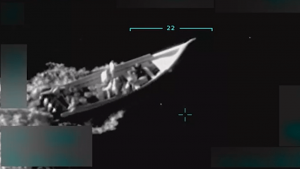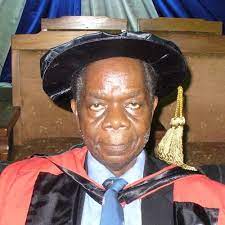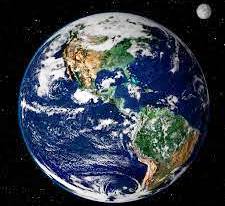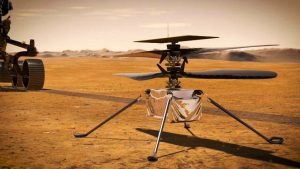What is time?
Professionals in different fields developed their own understanding of what time is, or means to them, making any definition more difficult to be accepted universally.
Psychologists say when people are subconscious, they have a different idea of time.
For example, boxers who are knocked down say, when they were on the canvass, the referee’s count seemed faster. The 10 seconds they are to beat as a “time limit” and get up on their feet before being counted out, they say, appears so short.
Albert Einstein in explaining his theory of relativity, adopted a psychological approach saying, “sitting next to a pretty girl for an hour feels like a minute, but placing your hand on a hot stove for a minute feels like an hour.”
So, our perception of time is psychologically relative as it seems faster when you are happy, and slower when you are sad.
In sociological relationships, people are asked to “find more time,” “make more time,” “lose no time,” or “spare time” for something.
“Time heals wounds” as old quarrelers make-up. “How time flies.” “There is time for everything: time to work and time to play; time to sleep and time to wake.”
In social functions, it is said “no African time please,” or, when late for a social event, you sometimes say, “it is African time.”
Your arrival is “timely” when you arrive at the right time. When one does something repeatedly, we say he does it “time and time again,” or “time after time;” and when it is a very long time ago, we say it is “time immemorial,” and tell the story “once upon a time.”
We also say one is “time-tested” when he is effective over time, and an event is “time-consuming” when it takes plenty of time to do.
A time bomb is an explosive device that is set to explode at a particular time. We are however, warned not to sit on a “time bomb” when we allow an explosive situation to linger-on, unresolved.
When someone misses a big opportunity, we say “it is not his time.” If he hits it big, we say “his time has come.”
But, “time waits for no one,” or “only time will tell.” When a criminal is caught, or when someone dies, we sometimes say, “his time is up.”
Sports: In football, there is “extra-time” when no winner emerges after “regulation time.” There is “half-time” in the middle of each match when the players can get some refreshment and rest.
There is also “injury time,” or “time-on” towards the end of the game to compensate for time lost when the game was temporarily stopped due to, for instance, injury.
In basketball, players take “time-out” which is a “time-off” from the game for a very short while.
A time-keeper monitors time in a sporting event. In a boxing match, for instance, he rings the bell to begin or end each round of three minutes. He also assists the referee in counting the seconds that a knocked down boxer is on the canvass.
Economists and accountants have also joined: “time is money,” “time value of money.” Time can render money and financial instruments useless. People can also make a fortune, buying and selling, on speculations based on time.
There is Time Account or a deposit that earns interest and requires a notice before money in the account is withdrawn.
There is also a Time Deposit in which you cannot withdraw from, until after an agreed period.
A Time Series shows data collected over time. A Time Line shows events over time. A Times Table is a multiplication table.
In engineering, a Timing Belt or Timing Chain operates the Timing Gear in an internal combustion engine like a car.
A timepiece is a clock.
Physicists measure distance in time. For example, you hear them talk of the Sun being eight light-minutes away from the Earth, and even define the metre as the distance light will travel in 0.000000003335640952 second.
Planck Time is an infinitesimal period less than a second from which they understand what happened after the beginning of the Big Bang, which, they say, is the explosion of a primaeval particle that gave rise to the Universe.
They also talk about Time Dilation where they describe time relative to gravity and motion; Time Warp in which they talk of a hypothetical distortion in time where people can travel from one time to another; and a Time Machine, or a hypothetical machine, for traveling forward and, possibly, backward in time.
They also talk of a Wormhole or Einstein-Rosen bridge which is a hypothetical structure linking one “world” in one spacetime to another spacetime. In such a hypothetical tunnel, one can move between two separate points in spacetime inside the speculative tunnel.
Physicists also talk of Imaginary Time which is another direction in space they use in an attempt to overcome the problem they encounter in understanding the very beginning of the Universe in the Big Bang.
They take the real time as the horizontal axis of time (the left of zero is the past, while the right is the future) and Imaginary Time is the vertical axis. Both axes make up (the Euclidean) spacetime.
An understanding of time can also be found in religion. One cannot discuss what time is fully without religion.
Saint Augustine, the African philosopher and bishop of the Catholic Church, felt that time was created by God together with the Universe and, so, there was no time before the beginning of the Universe. Put in another way, there was no time before time.
This is essentially a deduction from the biblical account of instantaneous creation by God.
The opening sentence in the Bible, “In the beginning God created the heavens and the earth,” takes the creation of the heavens and the earth, or the Universe, as an initial event that took place and can be linked to a time – the beginning.
This appears a correct interpretation because it is impossible to imagine time without space and easier to imagine a physical event with time.
The instantaneous creation theory is supported by subsequent cases in the Bible like the creation of light also in the First Day – ‘And God said, “Let there be light”; and there was light’ (Genesis 1:3).
In the Bible, there is also mention of the Last Day which will be the end of time and the Universe when there will be judgement (Matthew 25:1-46, Mark 13:5-35, Luke 21:8-36, John 12:48).
Philosophy is added to make sense of it all. The term “first” means, under a particular condition it is being used, that there is nothing of its kind before it. It, therefore, follows that for the heavens and the earth, there can be no day before that First Day.
So, “in the beginning,” one can say that, from the biblical account, the First Day, with the creation of the heavens and the earth, started the history of time.
As the account goes, the history of time will, together with the Universe, end in the Last Day which will be the end of time.
Since time has ended then it, therefore, follows as in the biblical account, that heaven and hell that come after are forever.
Also, to the believer, God has no beginning in time since He has to exist to create the Universe and time.
The preacher seems consistent, then, when he says God has no beginning and no end since beginning and end of living beings and events are defined in time.
Islam and many other religions hold a similar view.
There are 114 Surah (chapters) in the Koran. Surah 7:54, “Surely your Lord is none Other than Allah, Who created the heavens and the earth in six days, and then ascended His throne. Who cause the night to cover the day and the day swiftly pursues the night. Who created the sun and the moon and the stars making them all subservient to His command. Lo!”
Scientists need to measure and test whatever they are observing and compare results. This led them to develop precise clocks for delicate experiments. One of such experiments is to test time dilation in the prediction from Einstein’s Special Theory of Relativity that a man traveling fast in space, will actually get younger.
To Isaac Newton, time is absolute, but to Albert Einstein it is not universal, but relative.
This gave rise to the “Twin Paradox:” With a set of identical twins at the onset, if one travels into space, he will age a little and the one on Earth will be older, ageing at regular pace.
The one in space when he returns is younger and has traveled into the future!
From Einstein’s Special Theory of Relativity, the speed of light is constant and is not affected by external forces, not even the warping of spacetime. So, time is affected to maintain the constancy of the speed of light in the warping of spacetime.
Also, Albert Einstein’s General Theory of Relativity was used to prove that gravitational fields affect the passage of time.
This showed that the planet, Mercury, slows in its orbit at the Perihelion (the part of its elliptical orbit closer to the Sun).
This type of slowing of time near a large gravitational body is called gravitational time dilation.
So, time is slowed by speed as in Special Theory of Relativity and gravity as in General Theory of Relativity.
Time, then, appears to be a flow of something which is being measured, differently.
But is that correct?
The Pulitzer prize-winning astronomer, Carl Sagan, said “time is not a flow of something; what does it flow past?”
Time is an abstract phenomenon.
People talk about the Arrow of Time where they see it as a passage or flow that moves only forward due to entropy and causality.
Dictionary definition of time seems to suggest that time is an independent thing continuously flowing through space into eternity. So, if one can hypothetically go to eternity, one will see, or meet, heaps of time!
WHO CAN DEFINE TIME?
One cannot end without attempting a definition of time.
Space is fundamental for time to exist and the Universe is the ultimate space. This is followed by motion because there can be no time unless something that exists in space moves. That matter, or thing that exists, creates the warping of spacetime.
For this reason, deep inside a black hole, with its extremely strong gravitation, things are believed to grind to a standstill and time ceases.
So, space, matter or energy and motion are essential ingredients for time to exist.
Time can, therefore, be said to be an abstract standard of measure of precise motion of matter in space which is a rate for all other movements in the same condition.
Has this writer been able to define time? No. Indeed, no one has been able to define time.
A phenomenon so commonly used has become difficult to define.
According to Albert Einstein, “in effect, time is simply what a clock reads. The clock can be the rotation of a planet, sand falling in an hourglass, a heartbeat, or vibrations of a Caesium atom.’’
Defining time in terms of space alone gives it no extra dimension from distance; defining it as speed is simply asking the question in another way because speed is distance covered per unit time.
We are sent back to where we started: What is time?
What is it that the clock is reading? Are the second, minute, and hour hands of the typical mechanical clock, for instance, not reading the face of the clock and not time?
Where, or what, is the time that any timepiece is reading, measuring or keeping?
Quantum physics even doubts the existence of time.
Time, it says, is not fundamental, but change is when it is observed.
In a dark room, a ball is both bouncing and stationary at once until it is observed. It is only then that it can be proved to be bouncing or still. Time is change in position when the change is observed.
The debate on what exactly time is, or is not – and no less important, its universally accepted definition – seems set to definitely continue for a long time to come, if not till the end of time.
photo credit: wikipedia,cern












Very interesting article I throughly enjoyed reading.
Thank you!
Thank you, Mary Jane, for finding the time to read our work.
We are happy you enjoyed what you read.